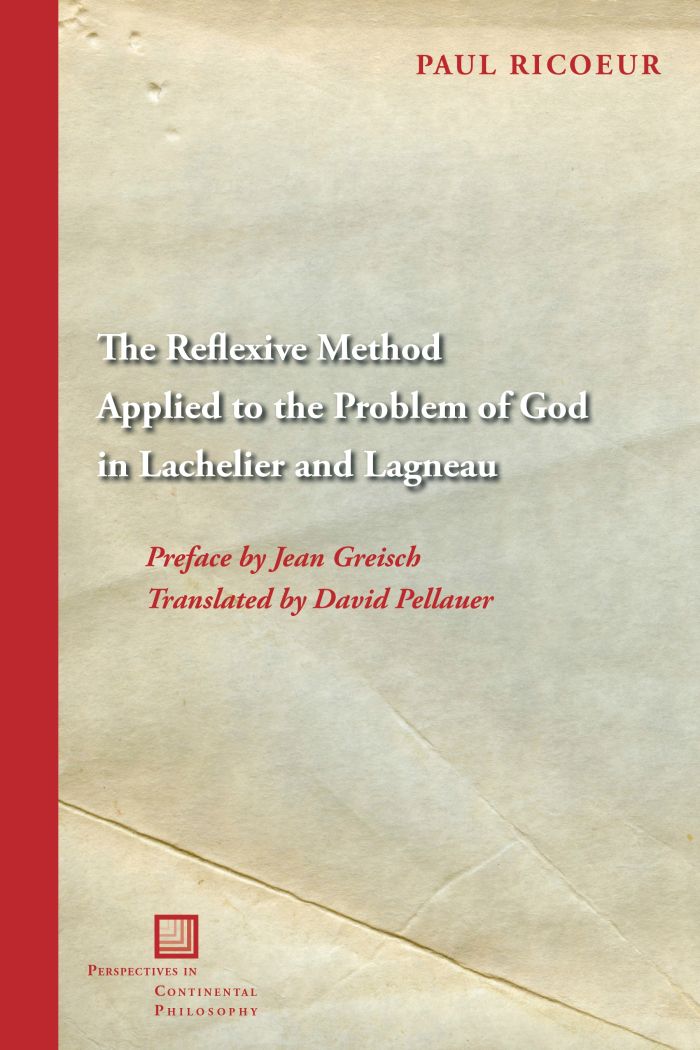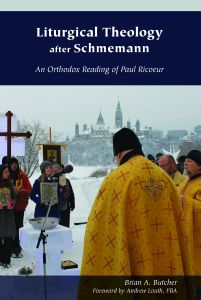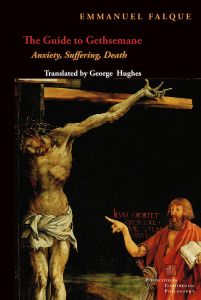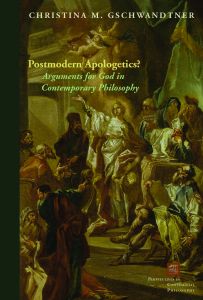The Reflexive Method Applied to the Problem of God in Lachelier and Lagneau

This book can be opened with

An engaging and thought-provoking translation of Paul Ricoeur’s earliest work that is essential for understanding his philosophical development
The Reflexive Method Applied to the Problem of God in Lachelier and Lagneau, now held in the Ricoeur Archive in Paris, was a qualifying thesis Ricoeur wrote at the age of twenty-one when he was just beginning his advanced university studies. In it he examines the use of the reflexive method by two important French philosophers from the nineteenth century, Jules Lachelier and Jules Lagneau. They both sought to develop an “integral metaphysics” that recognizes God as the principle underlying pure, impersonal thought and practical reason, and that requires a kind of philosophical faith. In his conclusion, Ricoeur criticizes their doctrine of God and philosophy of immanence for not being able to deal with the question of transcendence and for its failure to address concrete human existence, yet he concedes that it may be seen as a first truce in “the internecine war” between faith and reason.
Despite this criticism, Ricoeur later maintained that his own philosophy does stand “in the line of a reflexive philosophy” while remaining “within the sphere of Husserlian phenomenology” and striving to be “a hermeneutical variation of this phenomenology.” He also continued to address the question of faith and reason in works like Figuring the Sacred and (with André LaCocque) Thinking Biblically, as well as in many other essays.
The Reflexive Method Applied to the Problem of God in Lachelier and Lagneau is necessary reading for anyone doing serious work on and with Ricoeur’s philosophy.
Like an acorn, Ricoeur’s master’s thesis anticipates ideas that will mature several decades later in his philosophy of the will. Through a careful comparison of two lesser-known 19th century French spiritualists--Lagneau and Lachelier--Ricoeur explores the question of the relation between reason and faith, arriving at a conclusion that becomes a mantra for the rest of his career: “immanence always includes some transcendence.” This book, superbly translated by David Pellauer, brings a fresh perspective that remaps our understanding of the entire trajectory of Ricoeur’s thought.—Scott Davidson, University of Massachusetts Amherst, author of Pathos and Praxis: An Integrated Phenomenology of Life
Paul Ricoeur is one of the most important twentieth-century French philosophers, who taught both in France and in the United States. He was the author of many books, including The Voluntary and the Involuntary, Fallible Man, The Symbolism of Evil, Freud and Philosophy, The Rule of Metaphor, Time and Narrative, Oneself as Another, Memory History, Forgetting, and The Course of Recognition, as well as many essays, including ones on the philosophy of religion.
David Pellauer (Translator)
David Pellauer is professor emeritus of philosophy at DePaul University. He is the author of Paul Ricoeur: A Guide for the Perplexed and other essays on the work of Paul Ricoeur. He has also translated or co-translated many books and essays by Paul Ricoeur. He currently serves as a corresponding member on the Comité scientifique of the Ricoeur Archive in Paris.





